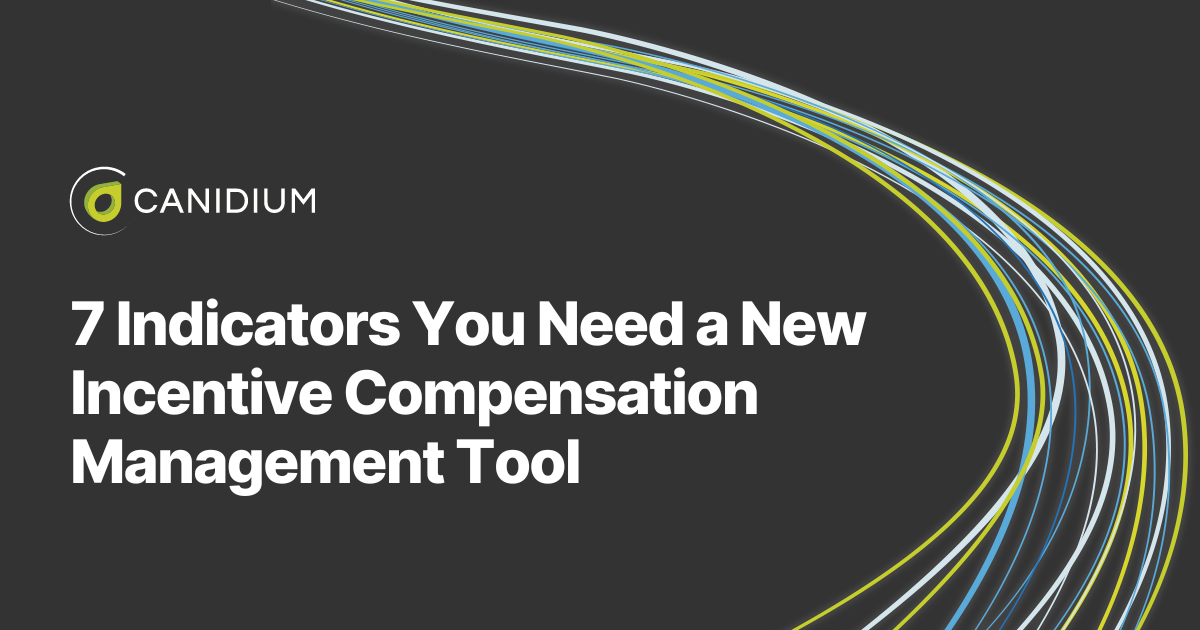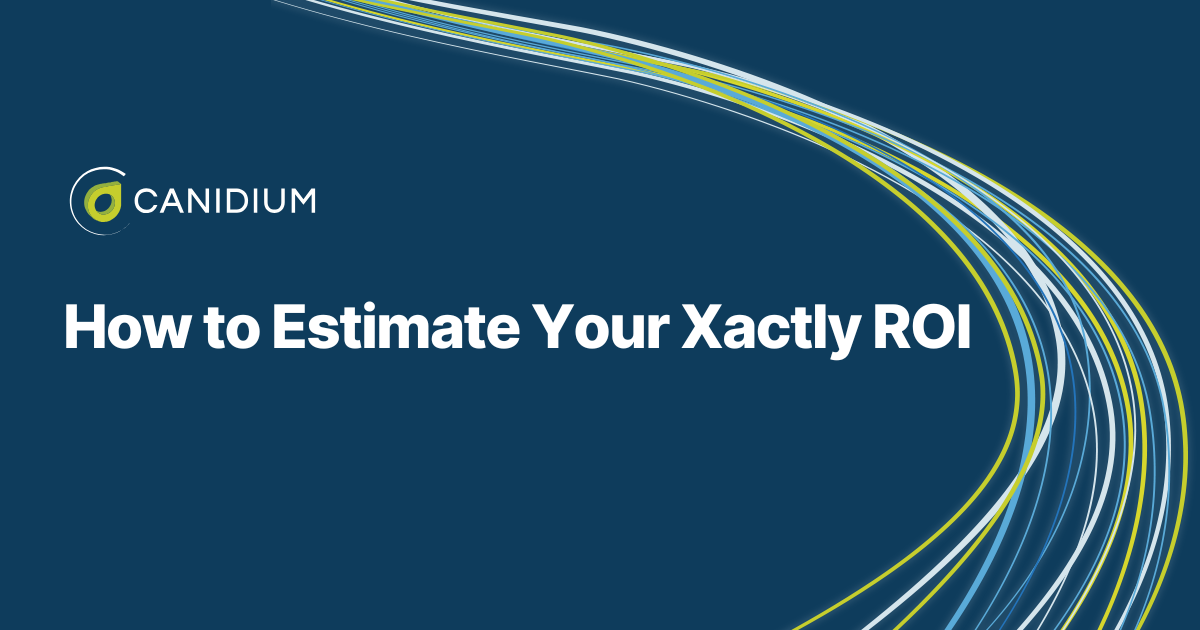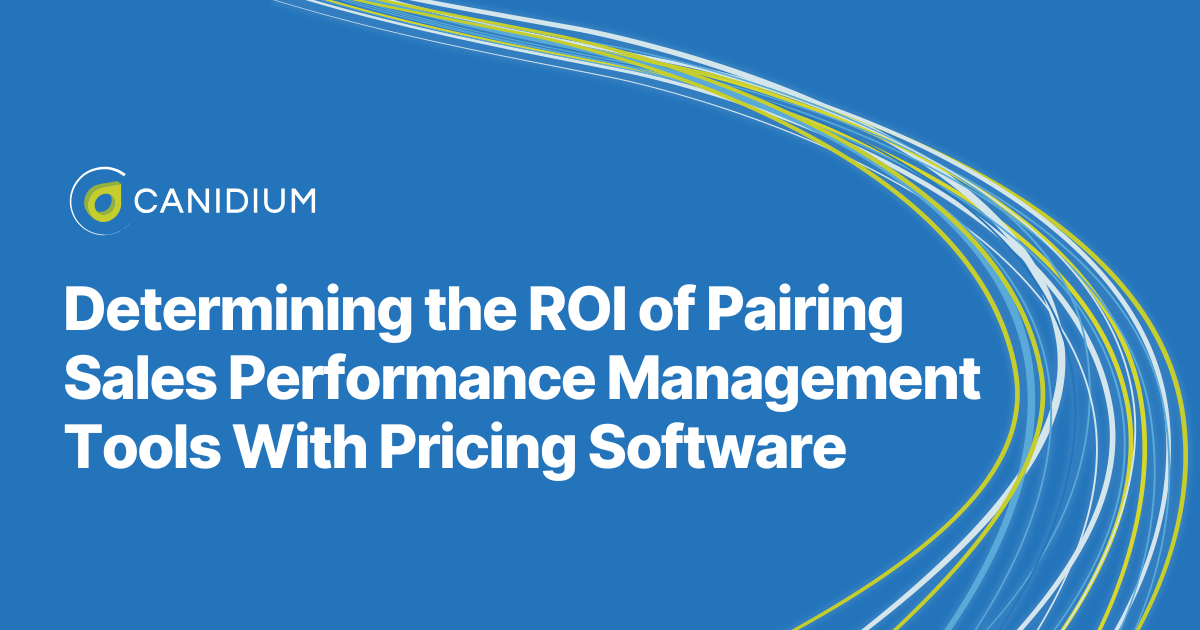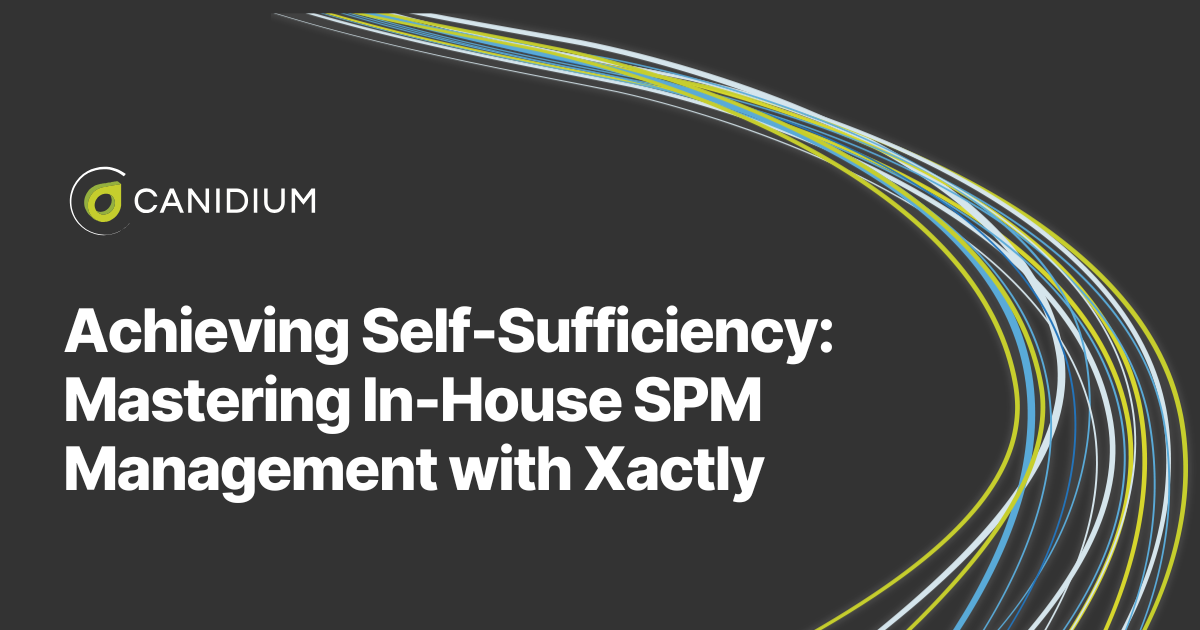Upgrading your incentive compensation management tools is a significant decision that requires careful consideration of your unique needs and challenges. Poor incentive infrastructure can drag down your company's performance, yet software implementations are still a costly investment. You need to ensure that your returns will justify the effort and expense of your upgrade.
At Canidium, our team of incentive compensation system experts helps clients determine how to maximize their potential through software solutions. We educate companies on options, allowing them to determine if an upgrade is a viable investment in their future sales potential.
To give you a head start, this article covers the seven indicators you need an incentive compensation management tool upgrade, including the following:
.png?width=1920&height=1080&name=Heading%20(4).png)
1. Stagnating Sales Due to Ineffective Incentive Compensation Plans
Well-designed incentive compensation plans produce a 112.5% ROI—increasing productivity by 18%. The right compensation planning system and effective strategic incentives can notably improve your revenue potential. However, you will not realize these benefits if operating on the wrong system.
Stagnant sales are the first sign that your existing incentivization structure is not effectively motivating your sales team. Even if you offer significant rewards for sales initiatives, an overly complex or difficult-to-navigate compensation dashboard prevents team members from thoroughly engaging.
Imagine you're a salesperson who puts in long hours, expecting to see your hard work reflected in your compensation. However, if the compensation plan lacks transparency, it can be incredibly demotivating. Without clear visibility into how commissions and bonuses are calculated, you might feel uncertain about what targets to hit and how your efforts translate into earnings.
At the same time, legacy tools make it difficult for comp admins to plan and implement incentives that maximize revenue potential successfully. For instance, manual data entry and calculations increase errors and consume valuable time, hindering strategic planning. Inaccurate and inconsistent data undermines decision-making, while inflexible systems prevent quick adjustments to compensation plans. Poor reporting capabilities and lack of real-time insights make tracking performance difficult. Additionally, managing complex compensation structures becomes cumbersome and error-prone. These issues lead to a reactive approach, preventing administrators from effectively planning and optimizing compensation strategies, ultimately impacting overall business performance and employee satisfaction.
If your sales stagnate, it's time to evaluate whether your current incentive plans are effective and transparent. Look for signs such as a lack of engagement from top performers or inconsistent achievement of sales goals.
2. Slow-running and Error-Prone Compensation Processes
The average payroll error costs companies $291. At scale, this figure suggests that compensation errors could cost your company thousands, if not millions, of dollars a year. If your compensation processes are bogged down by inefficiencies and errors, a new, more reliable incentive compensation tool can streamline operations and reduce costly mistakes. For instance, automation can speed up calculations, ensure accuracy, and free up your team to focus on more strategic tasks. Alternatively, suppose you are using spreadsheets to oversee incentives and compensation plans. In that case, each transaction, commission rate, and bonus calculation require a precise entry.
Manual processes are inherently slow and prone to errors, which can result in incorrect payments and disputes. This time-consuming task delays the payout process and takes up significant administrative resources that you could use for more strategic activities.
Moreover, consider the effort required to reconcile sales data with commission payouts at the end of each pay period. Slow-running systems complicate this task, making it challenging to ensure all data is accurate and up-to-date. Administrators must cross-check numerous records, often using multiple systems and spreadsheets. This process increases the risk of missing critical errors. It extends the time needed to finalize payouts, causing frustration for the sales team waiting for their commissions.
3. Security Concerns With Your Existing Incentive Compensation Management Tool
A secure system is essential to protect sensitive compensation data from potential breaches and to ensure compliance with various regulatory requirements. If your current incentive compensation management tool lacks advanced security features, it could expose your organization to significant risks. For example, confidential sales commissions and bonus data could be exposed to unauthorized personnel or external hackers without proper encryption and role-based access controls. Such breaches can lead to financial losses, legal liabilities, and damage to your company's reputation.
At the same time, poor security protocols are also a regulatory risk. Different industries have varying regulatory requirements for data security. For instance, financial services, healthcare, and other highly regulated sectors must comply with stringent data protection laws. If your compensation management tool lacks the necessary security features, it may fail to meet these compliance standards.
Ensuring robust security measures, such as encryption, role-based access controls, and real-time threat detection, is essential for protecting sensitive data and maintaining regulatory compliance. If your current tool cannot meet these security needs, it is a clear indicator that you need to upgrade to a more secure incentive compensation management solution to safeguard your organization's data and integrity.
4. Limited Transparency and Inability to Easily Adjust Incentive Compensation Plans
Transparency in compensation plans is essential for maintaining motivation and trust within your sales team. When salespeople understand precisely how their efforts translate into earnings, they are more likely to stay motivated and focused. However, if your compensation system is opaque and complex, it can demotivate your sales team. Salespeople might resort to shadow accounting, manually tracking their sales and commissions to understand their earnings. This wastes their time and distracts them from their primary role—selling.
At the same time, comp admins may lack visibility into factors like incentive software adoption rate among sales reps. Tools that provide granular reporting on internal software usage metrics provide unmatchable insights that help admins determine the value of their solution.
5. Insufficient Embedded Analytics and Reporting Capabilities
Navigating a complex business environment without access to real-time data and analytics is akin to trying to steer a ship without a compass. Embedded analytics and robust reporting capabilities are essential for understanding what drives sales, identifying performance trends, and optimizing compensation plans. These tools provide critical insights that help administrators and managers make informed decisions. Without them, you are left guessing what changes will be most effective, leading to suboptimal outcomes and missed opportunities.
Consider a scenario where a director needs to understand why sales have dipped in the last quarter. With an insufficient analytics tool, they can only rely on basic reports that provide limited insights. They have no way of knowing whether the dip is due to external market conditions, internal team performance issues, or the ineffectiveness of the current incentive plan. As a result, they can only make educated guesses, which may not address the root cause of the problem. In contrast, a tool with embedded analytics would enable them to drill down into the data, identify specific performance bottlenecks, and make informed adjustments to the compensation plan.
6. Overburdened Accounting Teams and Deficient Incentive Compensation Tool Automation
By 2025, 80% of businesses will adopt intelligent automation, meaning you must either implement automated solutions now or soon fall behind your competitors in operational efficiency.
Imagine your accounting team buried under piles of paperwork and spreadsheets, struggling to keep up with the demands of compensation calculations. They spend countless hours manually entering data, verifying numbers, and reconciling discrepancies each month. This labor-intensive process is not only time-consuming but also prone to human error. Mistakes in compensation calculations can lead to overpayments or underpayments, triggering a cascade of administrative headaches and eroding trust among your sales force.
If your team spends too much time on manual processes, your processes are inefficient and prone to errors. Automating these tasks with an advanced incentive compensation management tool can significantly reduce the workload, allowing your team to focus on more strategic activities. Automation can also ensure more timely and accurate payments, improving trust and satisfaction among your sales force.
7. Long-Term Dependence on Third-Party Managed Service Providers
Initially, relying on third-party managed service providers for your compensation system can seem practical. These providers bring specialized expertise and can help set up and manage complex compensation systems. However, over time, this dependence can become increasingly costly. Service fees, consultation charges, and the time spent coordinating with external teams can add up, straining your budget and reducing overall cost efficiency.
Becoming self-sufficient in managing your incentive compensation system can significantly enhance your operational efficiency. Comprehensive training and user-friendly tools can empower your internal team to handle compensation management independently. When your team has the knowledge and capability to make necessary adjustments in real-time, you can respond more effectively to business needs. This self-sufficiency saves costs associated with third-party services and boosts your team's confidence and competence.
Knowing When to Upgrade Your Incentive Compensation Management Tools
Effective incentive compensation plans are essential for maximizing productivity and achieving high ROI. Still, an outdated system can negate these benefits. Stagnant sales often indicate that your current compensation structure is not motivating your sales team. A lack of transparency and complex dashboards can demotivate salespeople, leading to disengagement and inefficiencies.
Manual tasks burden accounting teams, increase errors, and consume time that they could spend on strategic planning. Inefficient processes and poor reporting make accurate payouts and performance tracking difficult. Security concerns with outdated tools can expose sensitive data to breaches and compliance issues.
Limited transparency prevents sales teams from understanding their earnings potential, leading to shadow accounting and reduced selling time. Insufficient analytics hinder the ability to identify trends and optimize plans, leaving administrators to make uninformed decisions.
Relying on third-party providers can become costly and slow down adjustments. Empowering your team with comprehensive training and user-friendly tools enhances efficiency. It allows for real-time management of compensation plans.
To keep your sales team motivated and high-performing, evaluate whether your current system meets the standards of transparency, flexibility, and security. Upgrading to an advanced tool can streamline operations, reduce costs, and improve overall business performance.
Now that you know if you need to upgrade your incentive compensation management tools, your next step is to consider your software options. Start by learning the five essential software selection factors you should not ignore.








